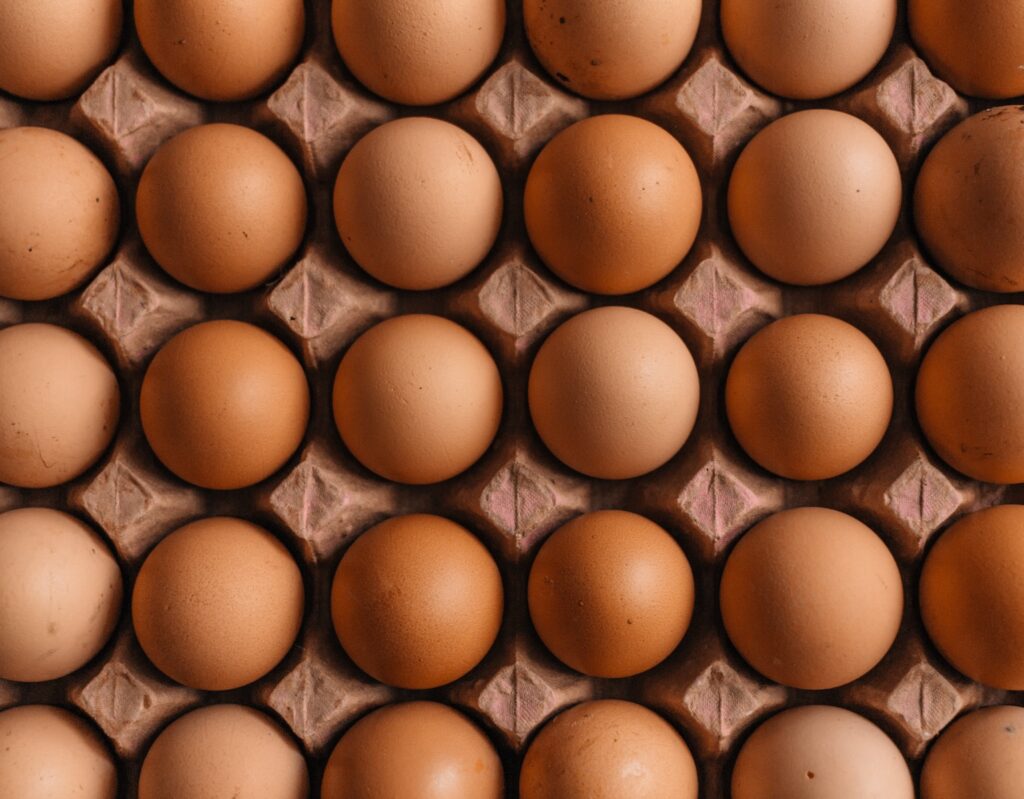
Top 20 High Protein Foods
Looking to increase your protein intake or build muscle? Here are the top 20 high-protein foods you must add to your diet.
Protein is an essential macronutrient that plays a crucial role in muscle repair, immune function, and overall health. To help you meet your protein goals, we’ve compiled a list of the top 20 highest protein foods to boost energy and help build muscle (and some might surprise you!)
Top 20 High Protein Foods
- Chicken Breast: Lean and versatile, chicken breast provides around 31 grams of protein per 3.5 ounces, making it a popular choice for fitness enthusiasts.
- Turkey: Similar to chicken, turkey offers roughly 29 grams of protein per 3.5 ounces, and it’s a great alternative for a protein-packed meal.
- Salmon: A rich source of omega-3 fatty acids and protein, salmon contains approximately 25 grams of protein per 3.5 ounces.
- Tuna: Canned tuna packs an impressive 30 grams of protein per 3.5 ounces, making it a convenient and tasty option.
- Eggs: With 6 grams of protein per large egg, they are an affordable and nutritious choice.
- Greek Yogurt: A creamy delight with around 10 grams of protein per 100 grams, Greek yogurt is a popular breakfast or snack option.
- Cottage Cheese: Boasting about 11 grams of protein per 100 grams, cottage cheese is a low-fat and protein-rich food.
- Tofu: As a plant-based protein, tofu contains about 8 grams of protein per 3.5 ounces, making it a favorite among vegetarians and vegans.
- Lentils: Packed with fiber and protein, lentils provide approximately 9 grams of protein per 100 grams.
- Chickpeas: A staple in many dishes, chickpeas offer roughly 19 grams of protein per 100 grams, making them ideal for salads and hummus.
- Quinoa: As a complete protein source, quinoa provides approximately 4 grams of protein per 100 grams and is a great alternative to grains.
- Almonds: A crunchy snack with around 21 grams of protein per 100 grams, almonds are also rich in healthy fats.
- Chicken Thigh: While slightly higher in fat, chicken thighs still offer approximately 28 grams of protein per 3.5 ounces.
- Pork Chops: Delivering about 31 grams of protein per 3.5 ounces, pork chops are a tasty protein option.
- Bison: A lean meat alternative, bison provides roughly 29 grams of protein per 3.5 ounces.
- Edamame: These young soybeans contain about 11 grams of protein per 100 grams and make a delicious and nutritious snack.
- Black Beans: A beloved legume, black beans offer around 8 grams of protein per 100 grams and are a staple in many dishes.
- Whey Protein: A popular supplement for athletes, whey protein powder can provide over 20 grams of protein per scoop.
- Seitan: A wheat-based meat substitute, seitan contains around 25 grams of protein per 3.5 ounces.
- Pumpkin Seeds: With about 30 grams of protein per 100 grams, pumpkin seeds are an excellent plant-based protein option.
Why is Protein Important for Building Muscle?
Are high protein foods that important? Research says yes. Protein is a critical nutrient for building and repairing muscle tissue. When you engage in physical activities like weightlifting, resistance training, or any form of exercise that stresses your muscles, tiny microtears occur in the muscle fibers. The body then initiates a process called muscle protein synthesis, where it uses amino acids from dietary protein to repair and rebuild the damaged muscle tissue. This repair process allows the muscles to adapt and become stronger over time, leading to muscle growth and increased strength.
6 key reasons protein is essential for building muscle:
- Amino Acid Building Blocks: Proteins are composed of amino acids, which are the fundamental building blocks of muscle tissue. When you consume protein-rich foods, your body breaks down the protein into these amino acids, which are then used to repair and build muscle.
- Positive Nitrogen Balance: Muscle growth requires a positive nitrogen balance, meaning that the amount of nitrogen taken into the body (through dietary protein) should be greater than the amount excreted. Proteins contain nitrogen, and when you have a positive nitrogen balance, it indicates that your body is in an anabolic state, promoting muscle growth.
- Muscle Protein Synthesis: The process of muscle protein synthesis, as mentioned earlier, is crucial for repairing and rebuilding muscle fibers after exercise-induced damage. Consuming an adequate amount of protein supports this process and allows your muscles to recover and grow.
- Satiety and Weight Management: Protein is known for its satiating effect, meaning it makes you feel fuller for longer. Including protein in your meals can help control your appetite and prevent overeating, which is beneficial for maintaining a healthy weight. Proper weight management also contributes to better muscle development.
- Preservation of Lean Muscle Mass: During periods of calorie restriction or weight loss, the body may break down muscle tissue for energy. Adequate protein intake can help minimize muscle loss during such times and preserve your hard-earned gains.
- Hormonal Support: Protein consumption can positively influence hormones involved in muscle growth, such as insulin-like growth factor 1 (IGF-1) and testosterone. These hormones play essential roles in regulating muscle growth and recovery.

How Protein Deficiency Impacts the Body
A lack of sufficient protein in the diet can lead to various negative health consequences and nutritional deficiencies. Protein is an essential macronutrient, meaning the body cannot produce it on its own, and it must be obtained through the foods we eat. Here are some potential effects of protein deficiency:
- Muscle Loss and Weakness: Protein is crucial for maintaining and repairing muscle tissue. Inadequate protein intake can lead to muscle wasting, weakness, and a decreased ability to perform physical activities.
- Delayed Growth and Development: Protein is essential for growth and development, especially in children and adolescents. Protein deficiency during these critical stages can lead to stunted growth and developmental issues.
- Impaired Immune Function: Proteins play a key role in the functioning of the immune system. A lack of sufficient protein can weaken the immune response, making the body more susceptible to infections and illnesses.
- Fatigue and Weakness: Protein is a source of energy, and a deficiency can lead to decreased energy levels, fatigue, and a general feeling of weakness.
- Edema (Swelling): Severe protein deficiency can result in a condition known as edema, where fluid accumulates in body tissues, causing swelling, particularly in the limbs.
- Hair, Skin, and Nail Problems: Protein is essential for healthy hair, skin, and nails. A lack of protein can lead to brittle hair, skin issues, and weak, brittle nails.
- Hormonal Imbalances: Some hormones are made up of proteins, and inadequate protein intake can disrupt hormonal balance and lead to various health issues.
- Impaired Brain Function: Proteins are necessary for the synthesis of neurotransmitters and other essential molecules in the brain. Protein deficiency may affect cognitive function and mental clarity.
- Poor Wound Healing: Protein is crucial for the repair and regeneration of tissues, including skin. Insufficient protein can lead to delayed wound healing and compromised recovery after injuries.
- Reduced Enzyme Function: Many enzymes in the body are proteins that play critical roles in various biochemical reactions. A lack of protein can lead to impaired enzyme function and hinder essential metabolic processes.
It’s important to note that complete protein deficiency is rare in well-nourished individuals in developed countries. However, some populations, such as those with inadequate diets or certain medical conditions, may be at higher risk. Additionally, prolonged inadequate protein intake, as seen in extreme dieting or certain eating disorders, can lead to serious health problems over time.
It’s also important to note that while high protein foods are vital for muscle growth, it’s not the only factor. A well-rounded diet that includes carbohydrates, healthy fats, and various micronutrients is essential for overall health and optimal muscle development. Additionally, consistent resistance training and adequate rest are equally as important for maximizing muscle gains.
As a general guideline, individuals engaging in strength training or muscle-building activities may aim to consume about 1.2 to 2.2 grams of protein per kilogram of body weight per day, depending on factors such as age, activity level, and overall goals.
You should consult with a nutritionist or healthcare professional to determine the right amount of protein for your specific needs and goals.




